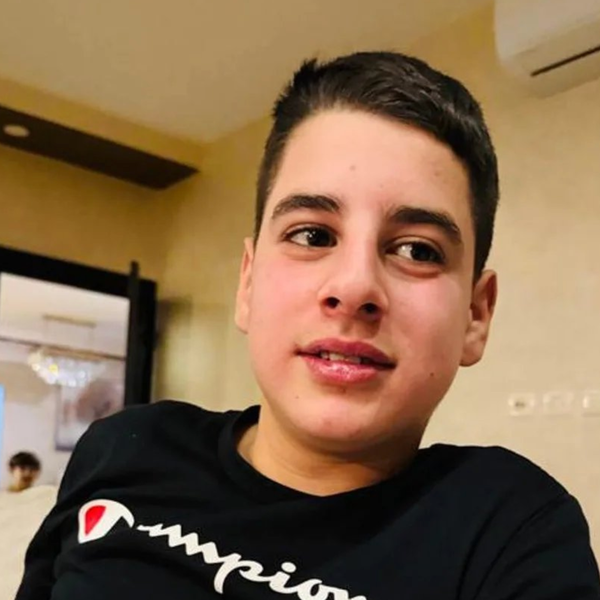I took a walk in the countryside with Binyam Mohamed after his release
from Gitmo. "I still think I might wake up tomorrow morning and find
myself back in Guantanamo Bay," he told me, as we climbed a hill in the
West Country. "It would all be the same. I'd just find that I had just
been allowed to spend a rather longer-than-normal visit with my
attorney."
Adjusting after seven years in prison is not easy; adjusting after
the surreal nightmare of seven years of torture is obviously much
harder still. Binyam and I continued to talk. Only hours earlier he had
been in a cell in Camp Five. At Gitmo, he was allowed a maximum of
three paces in one direction, before a concrete wall turned him around.
The freedom of this field, where only sheep were fenced in, seemed
unreal.
The day before, Binyam had flown in to RAF Northolt. A phalanx of
journalists waited at the entrance to the air force base in west
London. For Binyam, it was a confusing welcome. Here were many of the
people who had worked hard for his freedom, people who had written and
broadcast about the horrors of his rendition to torture in Morocco.
When we had carried their newspaper articles into his prison cell, he
had hope. But, to keep his spirits up, I never took him the hostile
editorials.
"Terror suspect flown back to Britain by private jet", the Daily
Express headline now shouted at him. Indeed, he did fly in on a
Gulfstream - paradoxically, the same brand of "private jet" used by the
CIA in July 2002 to carry him to 18 months of medieval mistreatment in
Morocco.
"Treated like royalty," added the Express. It is true that I waited
with his sister Zuhra and his military attorney, Lieutenant Colonel
Yvonne Bradley, in the "Royal Suite" at RAF Northolt. Binyam, in the
meantime, was undergoing two hours of questioning by the British
police, less typical of the welcome accorded to Her Majesty.
The police were worried, reporting that dozens of photographers on
motorcycles were revving their engines just outside the base.
The prospects for us of carrying Binyam away to recuperate quietly in
the countryside seemed dim. But, in the end, we did escape, running the
gauntlet of the Northolt gate.
The next day, Binyam and I walked, and he talked about his future.
Seven years of his life had been taken from him. How could he ever hope
to make up for that time in the years ahead? Was his life destined to
be defined by the stolen years? Would he only be asked to talk about
the torture?
Binyam was reticent about the media. We discussed how, if he spoke
to only one journalist, he would risk alienating the rest. He knew that
if he had to talk to everyone, he would risk losing a tenuous grip on
his new reality. He knew that the more his picture was published, the
less likely it would be that he could live a normal life.
He had returned home with only one clear ambition - to help secure
justice for the 241 men whom he left behind at Guantanamo. Among them
was Shaker Aamer, who Binyam had hoped would be on the same Gulfstream
flight as himself. Shaker would have been coming home to his wife and
four children; instead, he remains Internment Serial Number 239, still
unable to hold Faris, a child he has never met, born after he was
seized in Pakistan.
Binyam never told the men on his block that he was slated for
freedom. He felt it would be unkind. How could he tell Mohammed
el-Gharani, snatched by the Pakistanis and sold to the Americans at the
age of 14, that he - Binyam - was headed home, while Mohammed would be
left behind? So he hedged, and hinted that he was packing his meagre
belongings for a move to another cell block.
Now some of Binyam's first, strange meetings on a West Country farm
were with other British men he had met at Guantanamo Bay. This only
deepened his confusion. Was he here, or was he there?
These former prisoners respectfully urged him to face as much of the
media as he could. He was, they told Binyam, the only voice for the men
left behind.
So Binyam decided that he would try to speak out. But it would have
to be incremental. And some things he simply could not confront. He
would not, he insisted, go into the details of the harshest abuses. The
torture had been designed to humiliate; repeating it all now would
merely add to the degradation.
Binyam knew he had to talk about some of his mistreatment. We talked
about the music torture that had been designed to destroy his sanity.
When we had spoken at Guantanamo Bay, he had described how Eminem was
played incessantly at him in the "Dark Prison". Back then, I could
never play the music so as to identify it for him; I was allowed to
carry only a pen and paper for the interviews. Now, with my laptop in
front of us, we could identify the songs. I played him "White America".
He flinched. He knew, warily, that he would be destined to encounter
songs such as this at random through the rest of his life.
As the days went by, Binyam slowly decompressed, beginning a process
that will take months, if not years. He began to emerge more frequently
from his room. In the kitchen, my seven-month-old son, Wilf, reached
out to tug on Binyam's beard. Binyam smiled gently at the child. There
was a twinkle in his eyes, perhaps for the first time in seven years.


